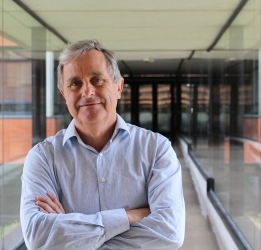
Over the last century, particle accelerators have been associated with basic physics: they have been tools of discovery and exploration of new frontiers, areas in which they have achieved numerous successes. Their interest for basic science is associated with the possibility of concentrating large amounts of energy in a small volume, which allows the production of heavy particles to which we do not normally have access or the exploration of regimes in which matter is subjected to very high temperatures. Examples of great results in this direction have been the discovery of the Higgs boson, the study of the internal structure of the proton or the creation of the first neutrino beams for research.
In recent decades, however, accelerator technology has found more and more applications as it has matured and become more accessible. One of the fields in which these applications have been most visible is medicine, where particle beams can be used to treat ailments, especially when surgery is not a good option. Within this field several options have appeared, since the beams used can be of photons, protons or even nuclei. Other areas in which accelerators have found application are, for example, crystallography, analysis of archaeological remains or materials physics.
In this week’s colloquium at IFIC, our colleague Juan Fuster will talk to us about the fields of application that are opening up for accelerator technology today, well into the 21st century. Medicine continues to be a strong motivation for the development of this technology, but industry is also coming on board as an increasingly powerful driver. In particular, he will dwell on the role that IFIC can play in these initiatives and on the collaboration with the Center for the Development of Industrial Technology (CDTI) of the Ministry of Science and Innovation to participate in a future center for medical treatment using ion therapy.
Juan Fuster Verdú is Research Professor at CSIC and member of IFIC since 1996. He has developed his research career in experimental high-energy physics, as a member of the CELLO, DELPHI and ATLAS experiments, and is also heavily involved in the development of detection technology for the future linear accelerator. His current research is mainly focused on top quark physics. He has been director of IFIC, and also vice-director of Technology and Innovation, a stage during which he promoted the creation of the UCIE that exists today at the institute. Since 2019 he is the CSIC Institutional Delegate for the Valencian Community.
The colloquium will take place next February 16 at 12:30h in the Assembly Hall of the Head Building of the Parc Científic and will also be offered telematically through Zoom. Check the events agenda to access the seminar.
